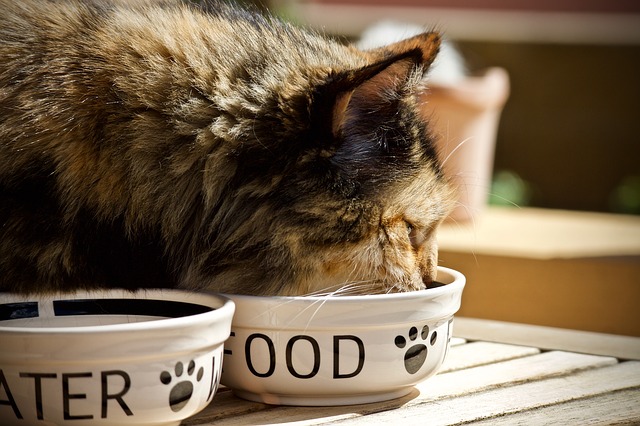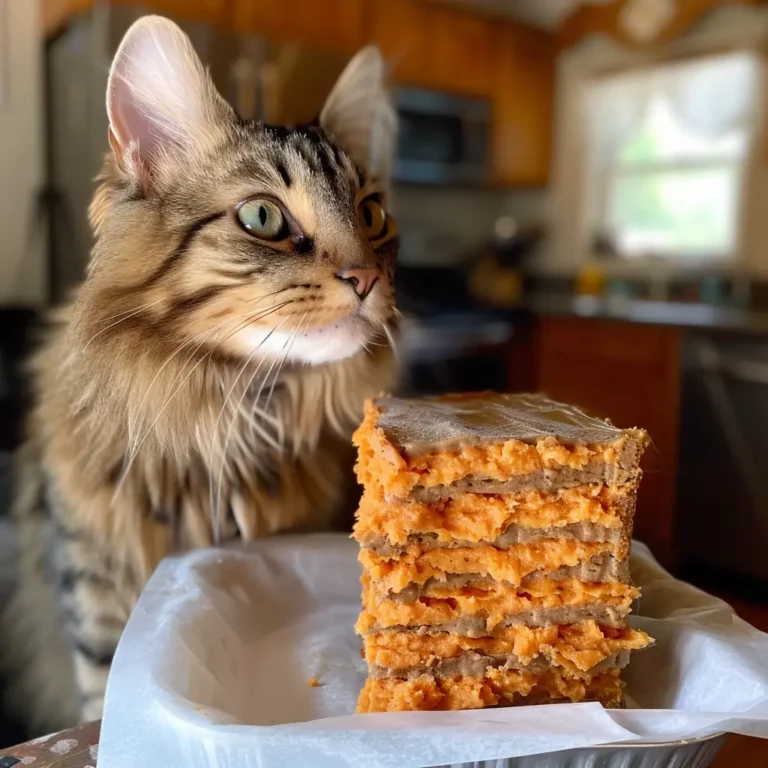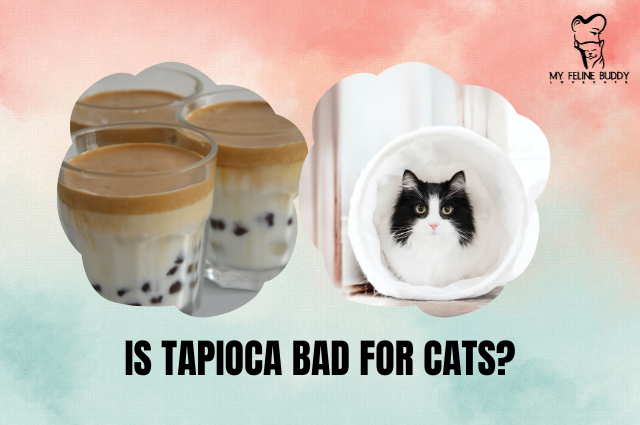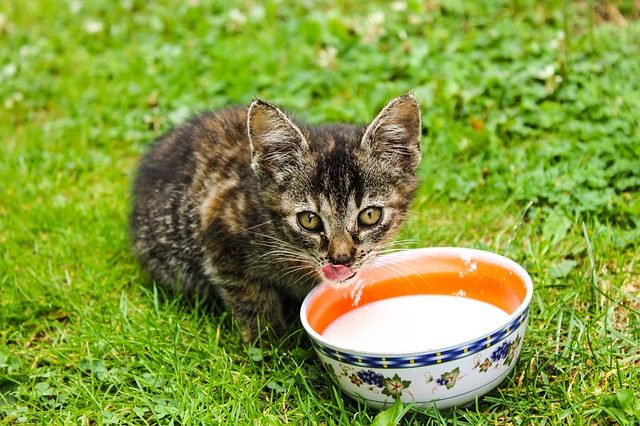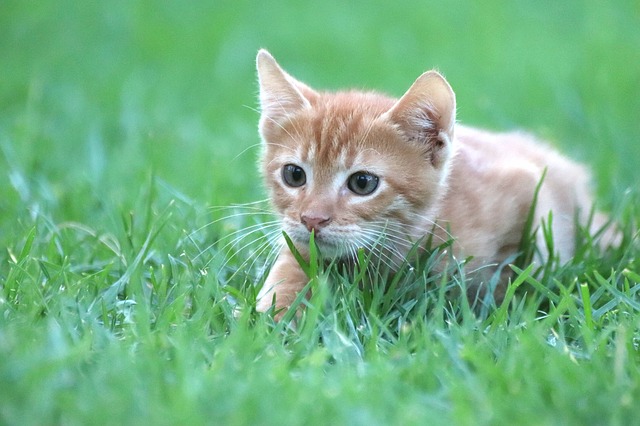Should You Feed Your Cat a Vegan Diet? Nutritional Risks Explored
Have you ever found yourself pondering whether your
As a veterinarian and a
The question at hand might look intriguing: Can cats, known as obligate carnivores, truly maintain their health and vitality without animal proteins in their diet?
The controversy isn’t new, but it’s as heated as ever.
With guardians reporting varying outcomes, from improved health indicators to the necessity of switching to therapeutic diets, it’s clear there’s a lot to unpack.
This article aims to shed light on the intricacies of feeding cats a vegan diet, backed by recent findings and personal insights from the field.
Whether you’re a seasoned vegan, a curious pet parent, or somewhere in between, you’ll find valuable takeaways on exploring this complex topic for the well-being of your beloved
Let’s Go Straight To The Answer – Can Cats Thrive On a Vegan Diet?
Exploring the world of feline nutrition can feel like a maze, especially when considering a vegan diet for your whiskered friend.
My aim here is to shed some light on why a meat-based diet is crucial for cats and highlight the specific nutrients that a vegan diet unfortunately lacks for our feline companions.
Why Cats Need Meat-Based Diets
I’ve always been fascinated by the resilience and adaptability of nature, yet certain biological needs remain steadfast, especially in our pets.
Cats, by their very nature, are obligate carnivores.
This means that their bodies are finely tuned to extract nutrients from animal sources, not just as a preference, but as a necessity for survival.
Take taurine, for instance.
This amino acid is found abundantly in the muscle meat of animals, and it’s vital for your
Unlike dogs and humans, cats can’t synthesize taurine from other compounds, which makes their need for meat much more critical.
Also, cats use protein as their primary energy source.
They have a higher requirement for protein in their diets compared to many other animals, and the protein from animal sources is complete with all the essential amino acids they need.
Imagining trying to power a high-performance vehicle with the wrong fuel type; it just won’t run as smoothly—if at all.
The same goes for feeding cats—a meat-based diet is the premium fuel their bodies need.
Nutrients Missing in a Vegan Diet for Cats
Let’s investigate into the specifics of what’s missing in a vegan diet for cats.
First off, besides taurine, various other nutrients come primarily or exclusively from animal sources.
These include Vitamin A (retinol), which cats can’t convert from beta-carotene found in plants, and arachidonic acid, a fatty acid that’s essential for skin health, kidney function, and digestion.
Besides, the protein structure in plant-based foods is quite different from that in meat.
Cats have specific dietary needs that require the high-quality, readily digestible proteins found in animal products.
While plants do offer protein, it often lacks one or more of the essential amino acids, making it incomplete for a
Picture trying to build a house with a few critical pieces missing—it might look okay from a distance, but it won’t hold up when tested.
For pet parents considering vegan diets for their feline friends, it’s crucial to understand these nutritional gaps.
Supplements can help to a degree, but synthetic versions of nutrients might not always have the same bioavailability as their natural counterparts.
It’s like taking a vitamin C supplement instead of eating an orange; the supplement can help, but it doesn’t offer the same range of benefits as the whole food.
The Health Risks of Vegan Diets for Cats
Complications of Nutrient Deficiencies
In my experience, shifting cats to a vegan diet raises significant concerns about nutrient deficiencies.
Cats are obligate carnivores by nature, relying on animal proteins and specific nutrients that aren’t naturally found in plant-based diets.
Let’s jump into the specifics to understand these risks better.
Firstly, taurine, an amino acid found exclusively in animal tissue, is essential for a
A taurine deficiency can lead to dilated cardiomyopathy, a severe heart condition, and potentially blindness.
I’ve encountered cases where a lack of taurine in a
Also, cats also require high levels of other amino acids like arachidonic acid, which is only present in animal fats.
This fatty acid plays a crucial role in managing inflammation and maintaining a healthy coat.
Vegan diets can lead to a stark deficiency in this vital nutrient, contributing to dull coats and increased vulnerability to infections.
Vitamin A is another nutrient that’s abundantly available in animal products and not in plant sources.
Cats can’t convert beta-carotene from plants into Vitamin A, making it essential to source from their diet directly.
Deficiency in Vitamin A can lead to skin problems, muscular degeneration, and poor night vision.
Hence, if you’re considering a vegan diet for your
They might suggest specific supplements that can somehow bridge these nutritional gaps, but remember, supplements can only do so much.
The bioavailability of nutrients from natural animal sources is unmatched compared to their synthetic counterparts.
Long-Term Health Concerns
Long-term health concerns associated with feeding cats a vegan diet are indeed troubling.
Over time, the compounded effect of nutrient deficiencies can lead to chronic health issues. Let me elaborate on a few significant ones.
Chronic kidney disease (CKD) is a condition I’ve seen more frequently in cats not receiving a diet tailored to their specific nutritional needs.
The high carbohydrate content in some vegan diets can put stress on a
Besides, inadequate diets often result in weaker immune systems.
Cats fed on improperly balanced vegan diets may become more susceptible to infections and diseases, given their bodies aren’t receiving the essential nutrients needed to fight off sickness.
Preventative care becomes far more challenging under these circumstances.
Finally, reproductive health can also be impacted.
Nutrient-deficient diets in breeding cats have led to litters with developmental issues and increased mortality rates.
The consequences extend beyond the individual to affect future generations.
Ethical Considerations
As we investigate into the intricacies of a
Balancing Animal Welfare and Diet
Trying to reconcile our ethical views with the dietary necessities of cats presents a challenging paradox.
On one hand, as someone deeply passionate about animal welfare, I understand the desire to limit animal suffering in all its forms.
This includes the meat industry’s impact on animals raised for consumption.
On the other hand, cats, by their biological nature, are obligate carnivores.
This means that they require certain nutrients that are most abundantly found in animal products.
For instance, taurine, an amino acid crucial for cats, is predominantly found in meat and is essential for their cardiovascular health, eyesight, and reproduction.
A taurine deficiency, as evidenced in studies and real-world cases, can lead to severe health issues, including dilated cardiomyopathy, a potentially fatal heart condition.
Similarly, arachidonic acid, a type of omega-6 fatty acid, supports cats in numerous physiological processes, including fertility and blood clotting, and is primarily sourced from animal fats.
So, how do we navigate this complex scenario?
The key lies in seeking a balance that respects both our ethical values and our cats’ health needs.
It might involve exploring commercially available vegan pet foods that have been scientifically formulated and supplemented to meet all of a
But, it’s imperative to proceed with caution.
Consulting with a veterinarian before making any drastic changes to your
They can offer insights and potentially recommend tests to monitor your
In practical terms, if we’re considering transitioning our cats to a plant-based diet, it’s critical to do so under strict veterinary supervision.
Vegan pet foods must be meticulously balanced and supplemented with synthetically-produced nutrients, like taurine and vitamin A, which cats cannot naturally synthesize from plant sources.
Alexandra Whittaker, an animal welfare scientist, suggests that while theoretically possible, crafting a perfectly balanced vegan diet for cats requires acute attention to detail and commitment to regular health monitoring.
Vegan Cat Food: Evaluating Alternatives
In my journey to address the delicate balance between ethical feeding practices and the health of our feline friends, I’ve delved deep into the world of vegan
It’s a controversial topic, but one that merits thoughtful discussion and analysis.
Let me guide you through the nuances of selecting suitable vegan alternatives for your
Analyzing Commercial Vegan Cat Food
When it comes to commercial vegan
Many brands now tout nutritionally-complete formulas, designed to fulfill an obligate carnivore’s dietary needs without any animal-based ingredients.
These products often include synthesized versions of vital nutrients like taurine and arachidonic acid, addressing the natural deficiencies vegan diets could pose for cats.
For instance, I came across a brand that scientifically formulates its vegan
This level of precision is reassuring, but it also underscores the necessity of choosing products that are transparent about their formulations and backed by rigorous research.
But, transitioning your
It’s essential to introduce the new food gradually, observing your
An abrupt change can lead to digestive issues or even rejection of the new diet.
Besides, regular vet checks are indispensable to ensure your
Challenges of Homemade Vegan Cat Diets
Crafting a homemade vegan diet for your
While the idea of handpicking the freshest ingredients for your beloved pet is appealing, the practicalities are daunting.
Achieving the right balance of nutrients, without any animal products, requires meticulous planning and a deep understanding of feline nutritional science.
I once attempted to create a balanced vegan meal for my
But, I quickly realized the complexity of accurately replicating essential nutrients found in meat.
For every success story, there are numerous accounts of deficiencies leading to serious health issues, from heart problems to vision impairment.
Also, cats have specific taste preferences and might not readily accept homemade vegan meals.
This can lead to further complications, like reduced food intake and nutrient absorption issues.
Hence, if you’re considering a homemade vegan diet for your
They can provide guidance on appropriate ingredients, supplement dosages, and meal preparation techniques to ensure your
Veterinary Insights on Vegan Diets for Cats
Embarking on a vegan diet for cats is a topic that requires careful consideration and an understanding of a
As an advocate for ensuring our feline friends lead healthy, thriving lives, I’ve dug deep into what veterinarians say about vegan diets for cats and the critical role of regular health monitoring.
What Experts Say
Veterinarians generally caution pet owners when considering a vegan diet for their cats.
The consensus is clear: cats are obligate carnivores.
This means their bodies are finely tuned to extract nutrients from animal sources.
Taurine, for instance, is an essential amino acid found only in animal tissue and is crucial for a
The challenge, hence, lies in replicating a diet that meets all of a
But, some commercially available vegan
For example, synthetic taurine is commonly added to vegan
Experts highlight that if a guardian is considering a vegan diet for their
This ensures that the food meets the minimum nutritional requirements for cats.
Nevertheless, veterinarians stress that choosing a vegan diet for a
It’s about ensuring optimal health, which can be a complex challenge to meet without animal proteins.
The Role of Regular Health Monitoring
Regular health monitoring becomes non-negotiable when feeding a
It’s not merely about watching for adverse reactions in the initial transition period but ensuring long-term health and well-being. Veterinary visits should include comprehensive blood work to monitor crucial markers.
For instance, low levels of B12 (a vitamin predominantly found in animal products) can lead to severe health issues in cats, including gastrointestinal problems and neurological disorders.
I always recommend a baseline health check before starting a vegan diet, followed by regular check-ups, at least bi-annually, to catch any potential deficiencies early.
It’s also beneficial to work closely with your vet to tailor supplements specifically to your
An illustration of why regular monitoring is critical can be found in the story of a friend’s
When Leo transitioned to a vegan diet, his guardian was proactive about regular vet check-ups.
These check-ups revealed early signs of a taurine deficiency, even though being on a supplemented vegan diet.
With quick adjustments and additional supplements, Leo continued to thrive on his vegan diet, showcasing the importance of vigilant, regular health monitoring.
Wrapping It Up
Deciding to feed your
The health and well-being of our feline friends should always come first. That means if you’re considering a vegan diet for your
This involves thorough research, constant consultation with your vet, and a willingness to adapt based on your
So let’s tread this path with care, always putting our furry companions’ health at the forefront of our decisions.

